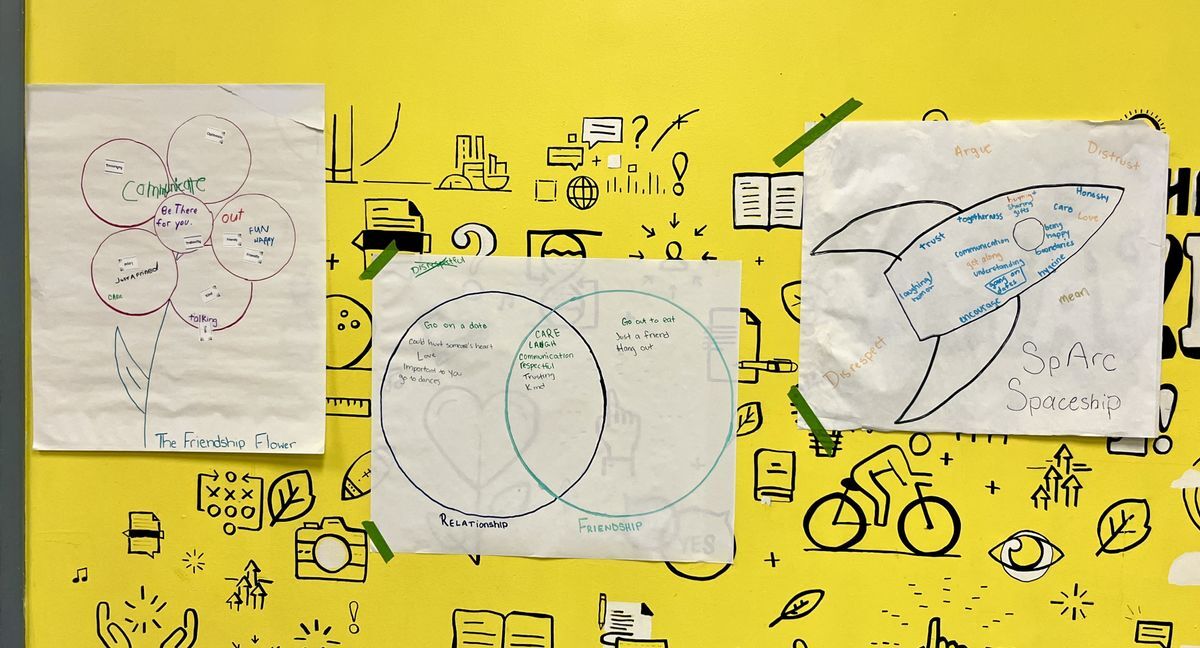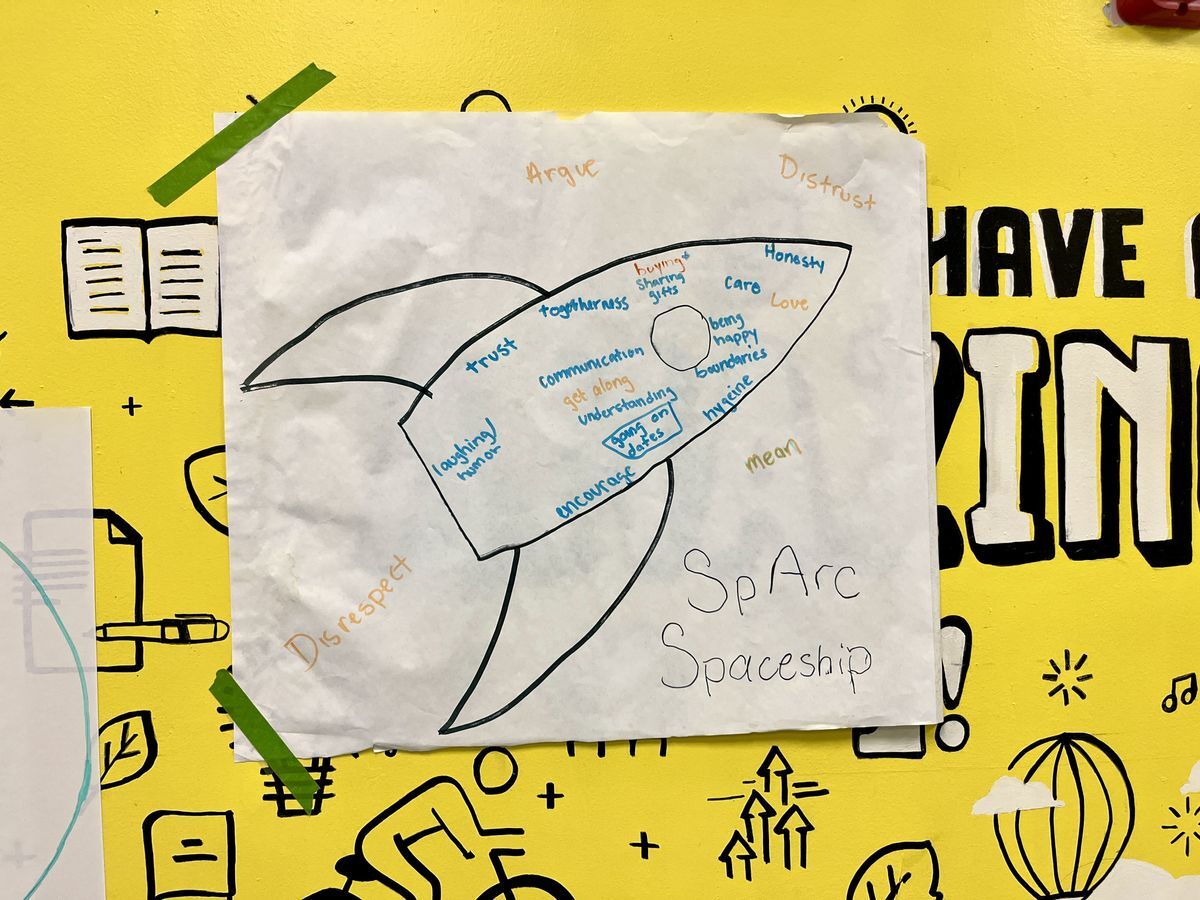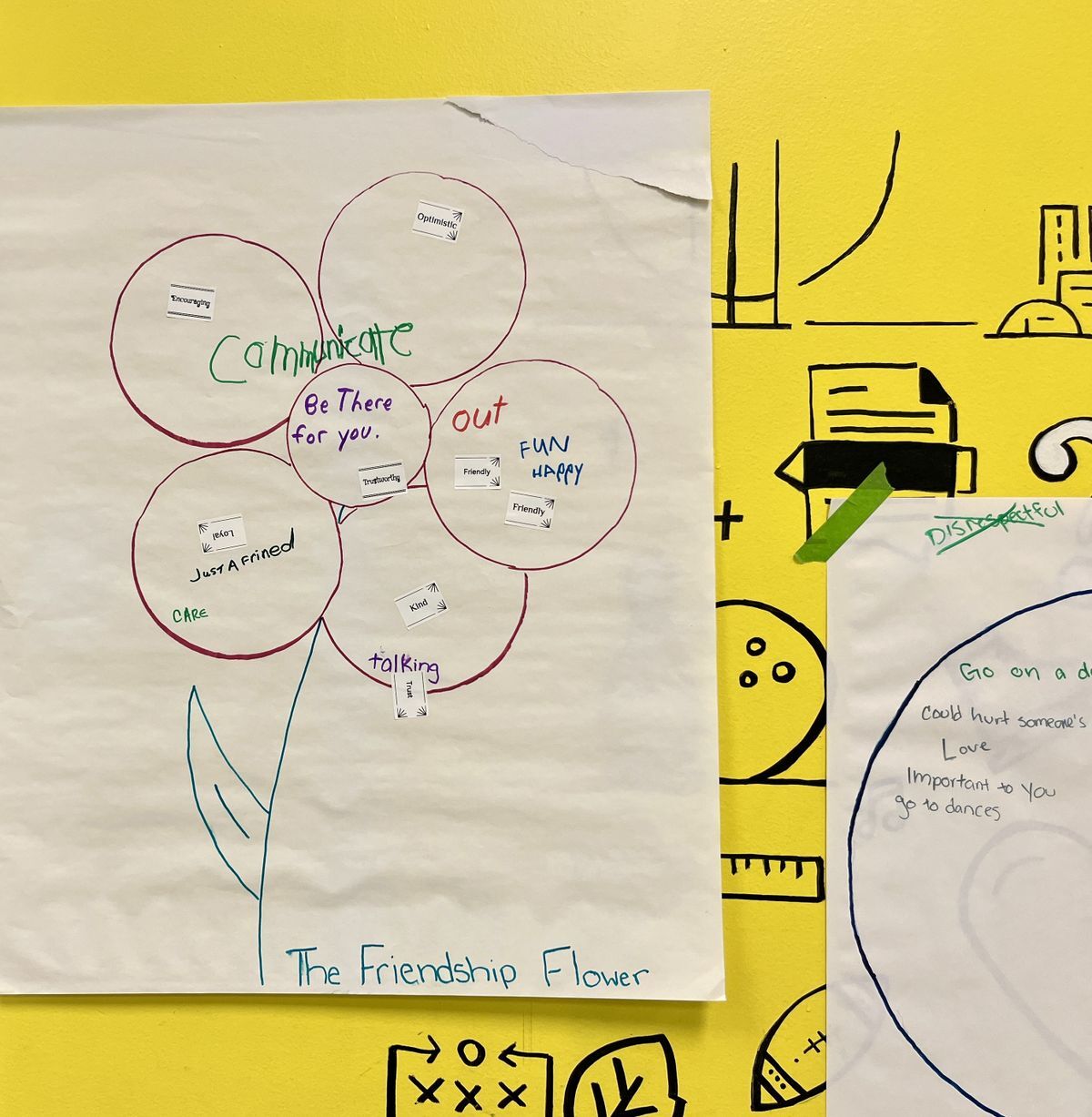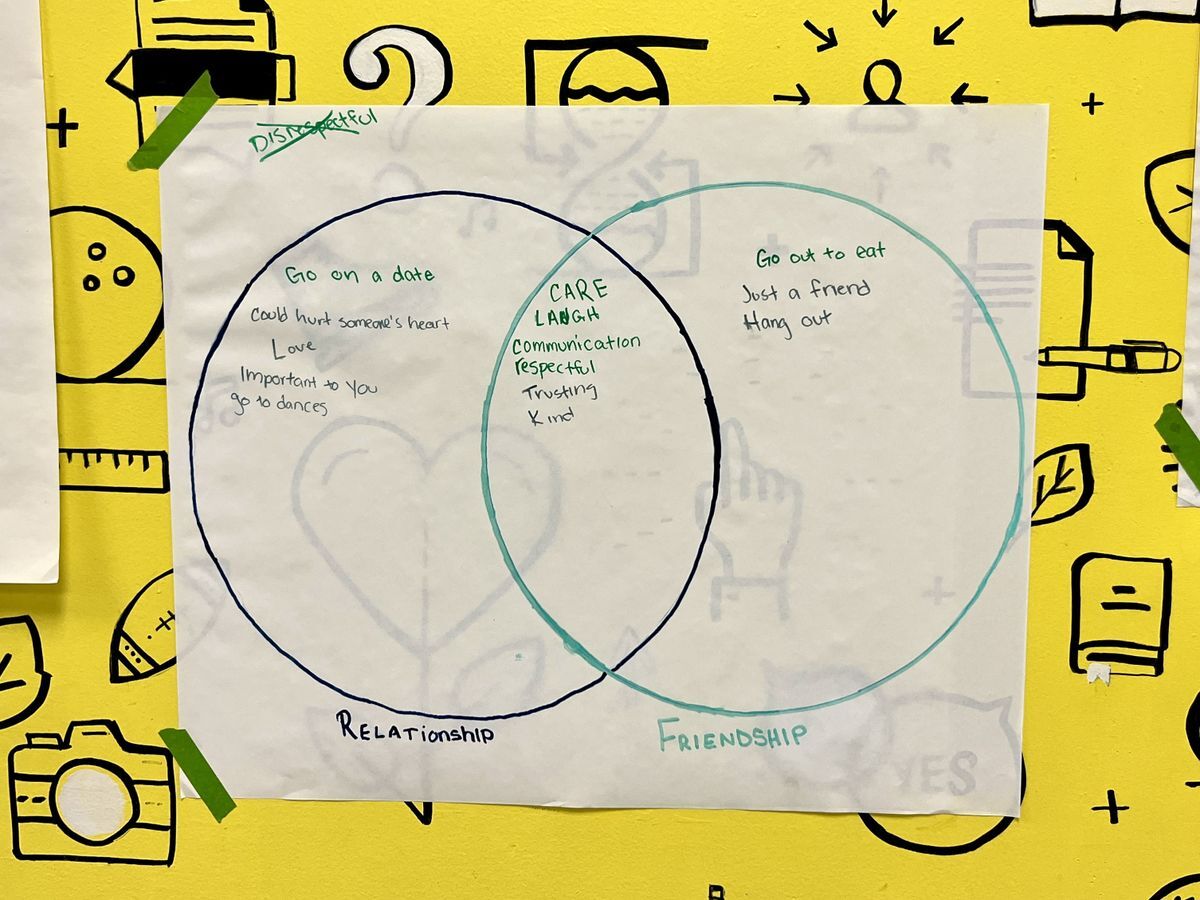Illuminating Independence through Occupational Therapy
By Sarina Mam
A deep dive into the symbiotic relationship between health professions students and individuals with intellectual and developmental disabilities.
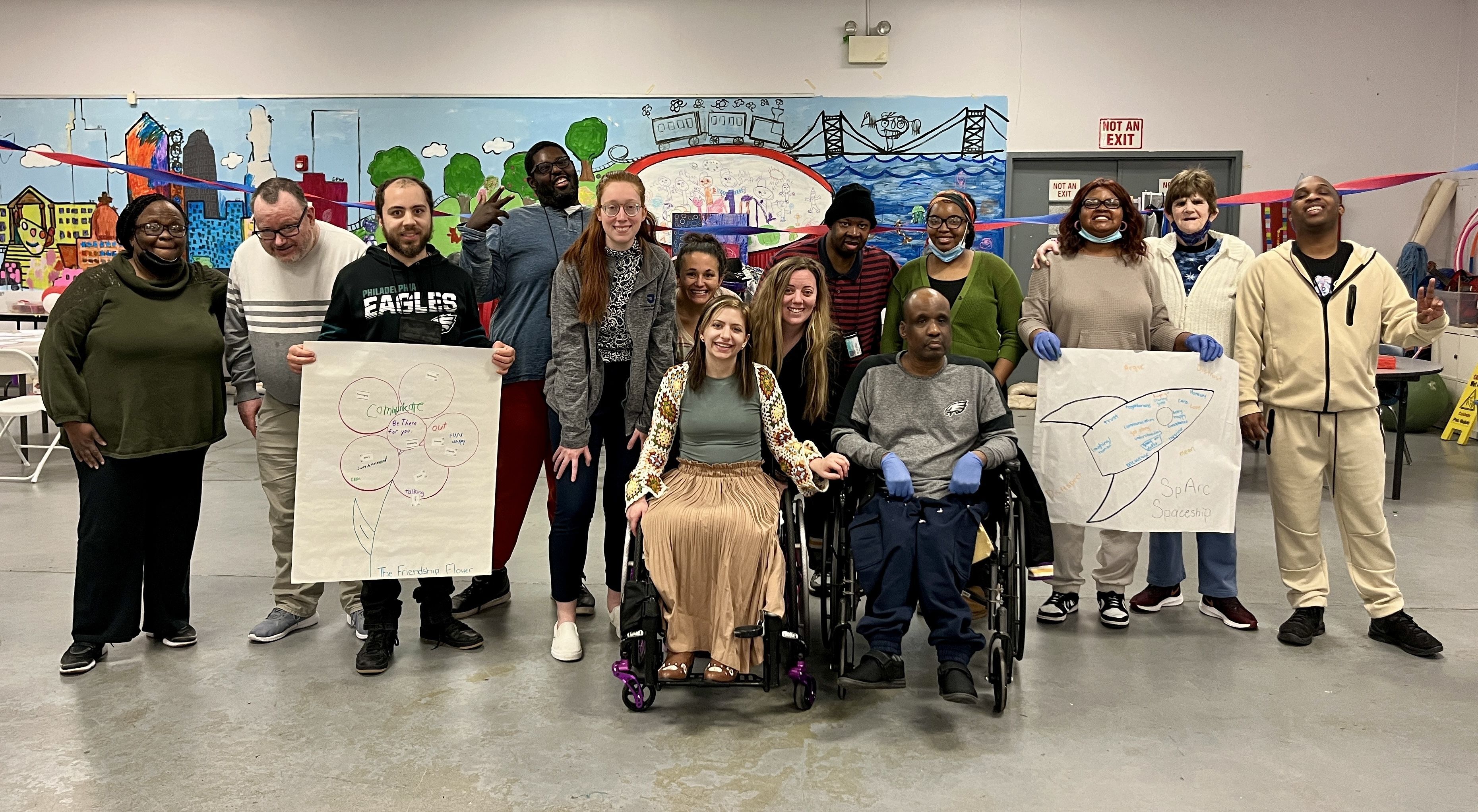
Since 2019, Occupational Therapy (OT) students from Thomas Jefferson University have utilized SpArc Services as a role-emerging placement, where they not only promote independence in program participants but also take autonomy over their own curriculum.
For the spring semester, Hannah Hetzel and Nicole DiSanti, students in the Occupational Therapy (OT) program at Thomas Jefferson University, visited SpArc Services, where they frequently spent their days connecting with program participants while completing their clinical fieldwork experience. The pair quickly built bonds with program participants and dove deep into the various methods of occupational therapy they could apply to support their diverse individual needs.
By delivering occupational therapy to participants at SpArc, OT students learn the best practices of providing care and support to individuals with intellectual and/or developmental disabilities (IDD) and help participants access greater inclusion, independence, and personal achievement.
Throughout the first few weeks, Hannah and Nicole began building rapport with participants, spending time talking about their daily lives and individual interests. Basic conversation was a vital component of their evaluation process and enabled them to modify assessments outside the standardized protocols to best support participants.
While Hannah and Nicole specialize in different areas of occupational therapy, their individual goals mirror the overarching purpose of Occupational Therapy–to enable individuals of all ages and abilities to achieve independence in all facets of life.
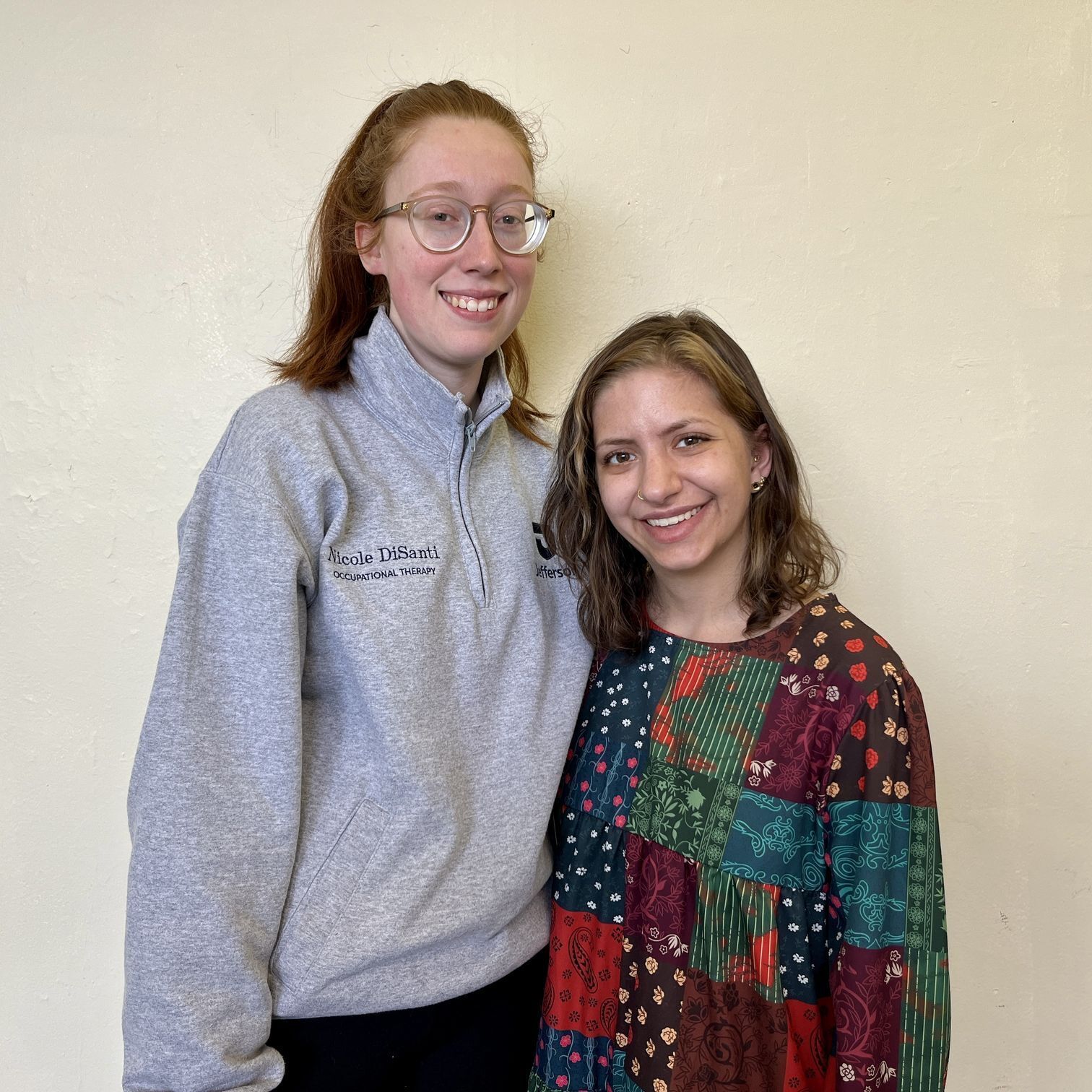
Occupational Therapy Students from Thomas Jefferson University, Nicole DiSanti (Left) and Hannah Hetzel (Right)
Hannah Hetzel, who is in the Masters’ OT program at Thomas Jefferson University, specializes in promoting independence through learning and discussing aspects of building healthy relationships and understanding emotional and sexual health. Before her time at SpArc, Hannah did not expect to receive nearly as much interest from participants regarding her topic of focus. Quickly, she discovered how very much individuals at SpArc value building and maintaining close connections, whether romantic or platonic. Hannah shared,
“For my friends with IDD, relationships aren't really what they talk about or focus on. So, to see so many individuals actually interested in relationships and discussing them definitely broke down a bias that I held myself… I was like, okay, they obviously like relationships, but I didn’t realize how important it was to them. And that it was just as important as relationships are to you and me. And that’s what drove me to want to follow the route that I am on with the topic of sexual health and relationships.”
One particular group session that stood out to Hannah was the ‘Relationship Spaceship,’ where participants learned about healthy relationships, how to form them, and the numerous features within them. As a team, Hannah, Nicole, and the program participants decided what qualities they wanted to take with them on the spaceship and which ones they wanted to leave in outer space. Participants were then given independent spaceships on which to write the qualities they wanted to bring with them, and as a collective, included their ideas in a giant spaceship to keep at SpArc.
As a continuation of the 'Relationship Spaceship,' Hannah held a group session featuring 'The Friendship Flower,' where program participants collaborated to decide what qualities they look for in friendships. To conclude this series, the program participants and Hannah reviewed their prior learnings from the 'Relationship Spaceship' and 'The Friendship Flower' to compare and contrast the ideal traits within friendships and relationships.
Hannah was thrilled at the level of enthusiasm, interest, and engagement in this activity by program participants. “For them to be so open about it and so interested, it was beyond worth it for me… And they all already understood the basic concepts of healthy relationships. That was a beautiful start,” Hannah exclaimed.
Nicole DiSanti, who is in the Doctorate OT program at Thomas Jefferson University, specializes in healthy living through health management and promotion. While she did not have prior experience working with people with IDD, she quickly connected with participants, who welcomed her with warm smiles and open arms.
“It’s really nice to walk in, and then everyone comes up to you, and they want to know how you’re doing and how your day is… I don’t know if that’s something I was even really expecting, but it’s something that makes my day. You could have a horrible day and then go to the program area, and I feel like they could 100% make you feel better,” Nicole shared.
Nicole centered her group sessions around the many fun, diverse, and engaging ways to incorporate healthy habits into one’s lifestyle. Instead of focusing on restrictive approaches, she highlighted the importance of taking small steps toward building healthy practices, such as mindfulness in healthy eating, drinking, and activity choices. These seemingly small steps are a crucial component when maintaining a healthy lifestyle. Mindfulness and nutrition addition, such as choosing to drink water instead of soda or adding vegetables to your meals, can generalize healthy decisions into daily routines and help one independently advocate for their own self-care and health.
Nicole recalled one of her favorite group sessions that focused on staying hydrated throughout the day. The session began with a ‘Myth or Fact?’ activity, where program participants were given statements about hydration and replied whether they believed it was true or false. One statement read, “Is this True or False? You can only reach your daily water intake by drinking water.” This statement is false. Many of us are unaware of the number of ways we can include water in our diet. For example, plenty of delicious fruits and vegetables are rich in water content, such as strawberries, cucumbers, watermelon, etc. To further hone this idea, participants squeezed juice from fruits of their choosing and added water. “Drinking water can be a lot of fun… It doesn’t have to be boring. You can add something like [fresh fruit juice] to drink more water if you like it,” Nicole said.
Nicole’s group session has already begun to generalize among program participants. Richard, a participant at SpArc Services, actively chooses to incorporate more water throughout the day. Nicole recalled, “Every time Richard sees me, he asks me to go with him to get a cup of water. It might be two, three, or more times during a session, but it’s a start, and I just love it.”
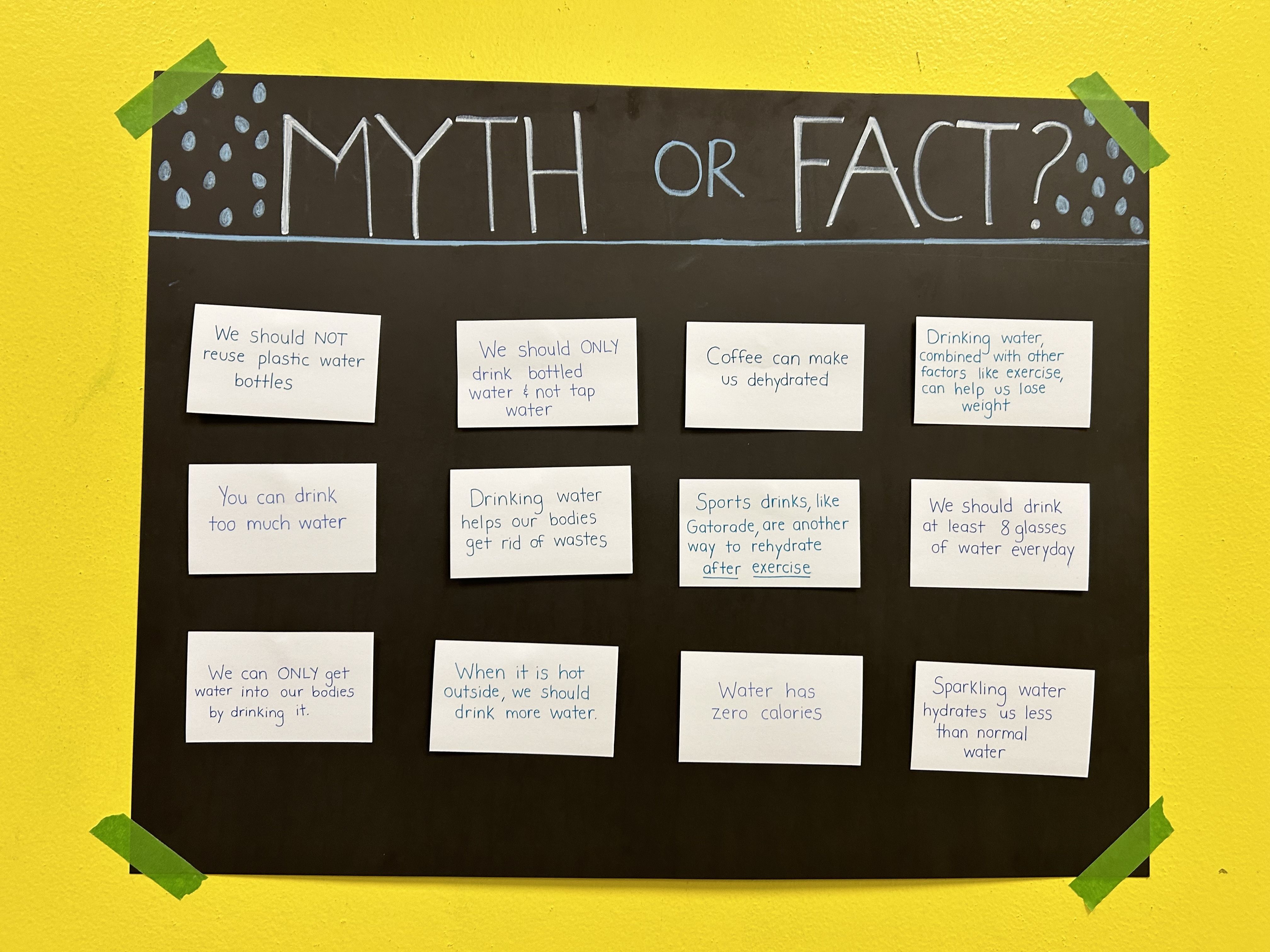
Many individuals with IDD at SpArc manage at least one chronic health condition throughout their lives and often do not receive the necessary care and support from the healthcare system.
Since training and education in working with people with IDD is not an established practice in healthcare curricula, many health professions students graduate with little to no experience working with individuals with IDD in clinical settings. This often leads to communication barriers and inadequate service delivery.
Before their time at SpArc, neither Nicole nor Hannah had previous experience working with people with IDD. Their 12-week fieldwork placement at SpArc Services enabled the pair to gain unique sets of skills, knowledge, and perspectives that they will apply throughout their careers. By working closely with program participants, their perception of accessible healthcare for people with IDD began to change. They learned how to create and implement accessible material for people with IDD, also emphasizing the importance of integrating accessible materials into the healthcare system and implementing them into practice.
“You will encounter someone with IDD wherever you go, and you need to engage with them to truly learn the best way to support them … Everyone having this knowledge should be the baseline,” Nicole voiced.
Although their time at SpArc has ended, Hannah, Nicole, and the program participants’ impact on each other will stay with them throughout their lives. As they embark on their next endeavors, Hannah hopes that her time at SpArc will enable participants to continue growing their independence. Hannah noted,
”I hope they realize they can be independent and they can gain skills, and just because they are adults doesn’t mean that they still can’t improve, flourish, and grow. I hope program participants truly remember that they can achieve whatever they want if they put their mind to it.”
In addition, Nicole hopes participants will remember the services they provided to them and the things they worked on and would like to continue working on. “I hope program participants apply these lessons learned in their daily lives to continue their independence.”
Wherever and however their careers unfold, this experience has helped Hannah and Nicole gain new-found knowledge and skills regarding how they and others can best support and advocate for individuals with IDD, and how to provide them with positive experiences in healthcare settings as well as the community.
Learn more about the Occupational Therapy Program at Thomas Jefferson University, here.

